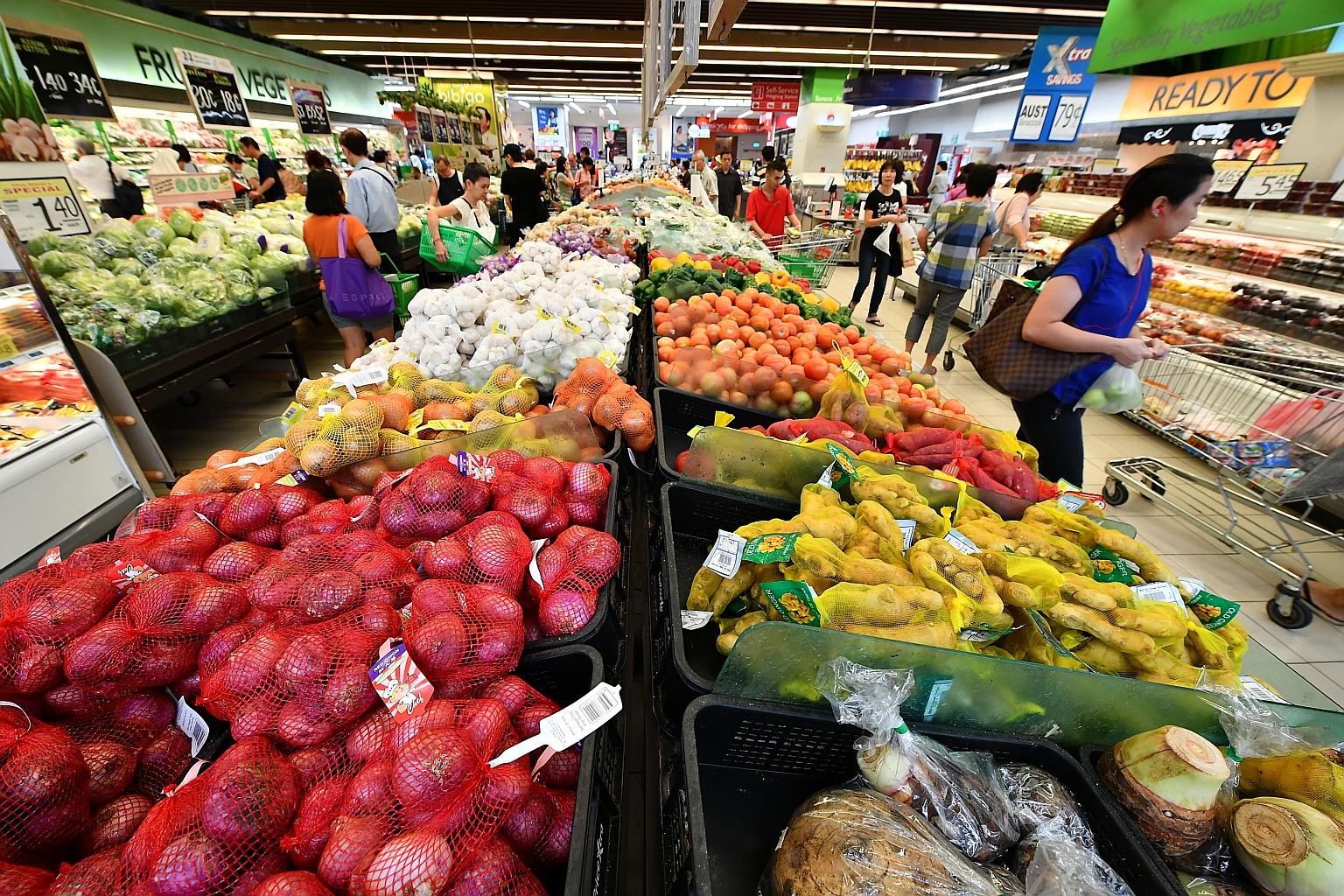Singapore tops global index for food security
Report notes access to cheap, safe, nutritious food, but highlights risks from climate change
Sign up now: Get ST's newsletters delivered to your inbox

Singapore's high score on the Global Food Security Index was largely due to its strength in the affordability component of the index. But the report also noted that food security for the Republic, which imports more than 90 per cent of its food, is the most susceptible to climate and natural resource risks.
ST FILE PHOTO
Singapore is top in the world when it comes to ensuring that its citizens have access to safe and nutritious food at affordable prices in the short and long term.
However, given that Singapore imports most of its food, climate change could disrupt its food security depending on how badly other food-producing countries are hit.
The Global Food Security Index released on Tuesday puts Singapore at No. 1, a jump of three places from last year. It is the first time it has topped the ranking since the index of 113 countries was started in 2012 by the Economist Intelligence Unit.
Ireland is in second place, with Britain and the United States in joint third.
The 113 countries were selected based on regional diversity, economic importance and population size. They were assessed on four categories - affordability, availability, quality and safety, and natural resources and resilience, which is "the ability to bounce back from a shock or disaster, ideally better off than before".
Singapore's high score was largely due to its strength in the affordability component of the index.
It is a high-income economy, with the report noting that its gross domestic product per capita has risen nearly 30 per cent since 2012.
It also has the lowest tariffs on agriculture imports among all 113 countries, which helps to reduce the overall cost of importing food.
-
TOP SCORERS
(Scores are upon 100)
1. Singapore: 85.9
2. Ireland: 85.5
3. United Kingdom: 85.0
3. United States: 85.0
5. Netherlands: 84.7
6. Australia: 83.7
7. Switzerland: 83.5
8. Finland: 83.3
9. Canada: 83.2
10. France: 82.9
But the report noted that Singapore's food security is the most susceptible to climate and natural resource risks, with the import-dependent country facing potential disruptions to its food supply.
The risks include exposure to climate changes, such as a rise in temperature, drought and flooding, and the health of land and water resources.
When those risks are taken into account, Singapore is ranked 16th, with Switzerland in the top spot.
Singapore imports more than 90 per cent of its food, according to the Agri-Food and Veterinary Authority of Singapore (AVA) website. Only a small amount is produced locally - 8 per cent of vegetables, 8 per cent of fish and 26 per cent of eggs.
An AVA spokesman told The Straits Times that Singapore's food security is vulnerable to global driving forces and trends, such as population growth, rising urbanisation and incomes, climate change, disease outbreaks and scarcity of resources.
"These trends are intensifying, and their interplay is heightening food security challenges more than ever," the spokesman said.
Singapore's jump in the global food security rankings comes ahead of the introduction of a new agency focusing on food safety and security here, on April 1 next year.
The Singapore Food Agency, which will take over food-related work currently done by the AVA, National Environment Agency and Health Sciences Authority, is expected to boost food safety standards for consumers and strengthen local food businesses.


